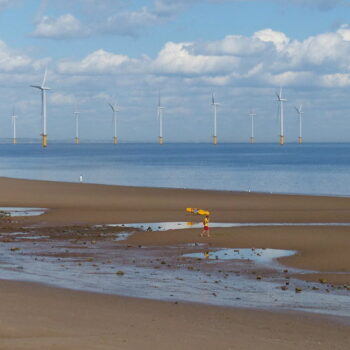The transition to a low carbon economy in Europe is no longer a mere possibility: it is bound to happen. The choice societies are facing is whether they stay passive and let the transition happen or whether they actively shape it.
Workers in high-carbon industries and their trade unions are facing a major dilemma in this process. On the one hand, they will have to shoulder the biggest burden in the transition to a sustainable economy. Given that many of the unionised high carbon industries stand to disappear, many of the hard won victories in decades of labour disputes are at stake.
On the other hand, unions are forces of societal change that understand the potential and the benefits of collective action. If unions in high carbon sectors continue using their clout exclusively to protect jobs in the short term they are missing out on an opportunity to shape the transition to a sustainable economy which we have already embarked on.
To date, many unions find themselves side by side with industry groups arguing that environmental regulation in Europe impacts negatively on competitiveness and employment. This is supposedly because environmental and climate regulations impose additional costs on businesses, which risks job losses or, worse, a move of production overseas thereby threatening entire value chains in Europe.
Unions therefore frequently subscribe to claims by organisations such as BusinessEurope which warned of “carbon leakage”, i.e. “industrial re-location out of Europe based on lower climate objectives by other major economies”, in response to the EU’s climate and energy policy framework for 2030. [1]
Many trade unions in Europe, especially in the areas of coal, steel, other heavy industry, and energy-intensive sectors are still sitting on the fence when it comes to climate policy. Whilst they know that their industries cannot survive in a carbon constrained world in their current form, many are focusing on defending the status quo. They are thereby foregoing a vital opportunity to shape the debate.
At the same time, many umbrella organisations of trade unions at the national, European and the international levels fully support the goal of decarbonising the European economy as an expression of their broader social mandate of empowerment and change. The European Trade Union Confederation (ETUC) and the German Trade Union Confederation (DGB), for example, are embracing the shift to a low carbon economy. Their focus is on ensuring a Just Transition that creates quality jobs and opportunities for workers, as well as economic growth. ETUC’s position on the 2030 climate and energy package explicitly states that “there can be no question of using the crisis or economic competition […] as a pretext to stall or dilute policies designed to drive down greenhouse gas emissions.”[2]
Evidence against the view that climate policy and economic competitiveness are necessarily at odds is accumulating. The recent New Climate Economy report is just one example. In the EU, green growth is already delivering with 3.4 million people in green jobs and eco-industries achieving a turnover of around €550bn (2012).[3]
However, the degree of unionisation in these new green industries is paltry, and many jobs are precarious. Europe’s green economy is not making up for job losses in traditional high carbon industries nor can it easily absorb workers from these industries. The low carbon transition is producing losers and winners and it is imperative to make the transition just and fair for those who stand to lose out.
Many workers do not see an alternative to working in their industry, especially given that high carbon industries are traditionally regionally concentrated. Their decline threatens the very socio-economic fabric of entire regions such as North-Rhine Westphalia, Germany’s industrial heartland, the mining regions of Lausatia in Germany as well as Upper and Lower Silesia in Poland, or the industrial region around Galati in Romania. If the concerns of workers and their families remain unaddressed, structural unemployment and economic decline will be the default outcomes.
The key challenge for the EU is complementing the green industrial transformation with a Just Transition framework that allows workers in high carbon sectors to benefit from the low carbon transition. At the very least, they have to be given the opportunity to adjust to the transition through monetary and other incentives. If their legitimate concerns are not addressed, trade unions in high-carbon industries are left with no alternative but to oppose progressive climate policy with all their clout.
Because of the influence that coal and steel unions have in key EU countries like Poland or Germany, this would almost certainly obstruct the long term goal of a low carbon economy in Europe. The EU needs to proactively engage these groups and offer structurally disadvantaged workers, regions and communities a future in an alternative socio-economic model.
[1] BusinessEurope (2014) EU Energy and Climate 2030: greater consideration for competitiveness needed. Press release, 24 October 2014. [2] ETUC (2014) The ‘Energy-Climate’ package in Europe for 2020-2030: the ETUC’s priorities for a Just Transition. ETUC position adopted at the ETUC Executive Committee on 21-22 October 2014. [3] Ecorys (2012) The number of Jobs dependent on the Environment and Resource Efficiency improvements. Report commissioned by DG Environment.This project action has received funding from the European Commission through a LIFE grant. The content of this section reflects only the author's view. The Commission is not responsible for any use that may be made of the information it contains.



